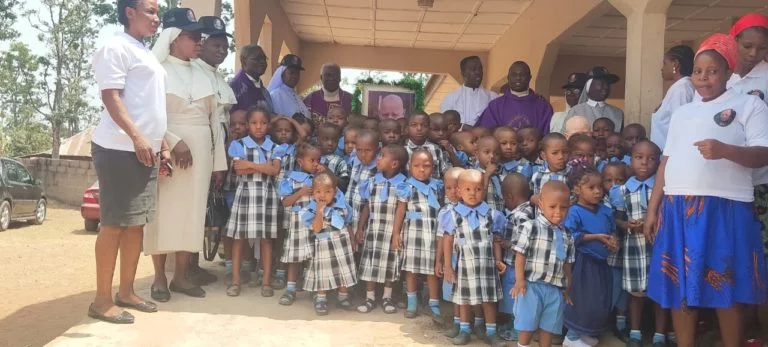Funerals in Nigeria – Did you know…?
The death of our beloved and revered Chief Adolf Paster is reason to take a look at Nigeria and reflect on how Africans deal with the death of a loved one.
For most Africans, death is only a transition. The deceased will continue to live with the family, albeit in a different, spiritual state, along with the ancestors who have gone before.
In Nigeria, a funeral is therefore a multi-day celebration in which all relatives and acquaintances participate. This celebration not only includes mourning the death of a loved one and bidding farewell to the deceased, but also the shared joy of a new life with God!
If the relatives can afford it, such festivities can last several days! The family contributes everything to make the celebration as big as possible, as it shows the appreciation for the deceased. Therefore, good food, dance, and entertainment are highly valued.
The preparations for a funeral alone are much more extensive than in Western culture. Brochures with a program for each day of the festivity are printed, and relatives and loved ones are featured and describe the life of the deceased and their relationship with them. New clothing is tailored for each day to express the close relationship of the participants with the deceased.
Posters with the portrait of the deceased – often life-size – are printed and hung up everywhere. Each family member receives T-shirts with photos and sayings of the deceased as a souvenir.
Traditionally, the next of kin shaves one half of their head bald as a sign of mourning.
It is impressive to see how important a dignified farewell, but also accompanying the deceased in the afterlife, is to people!
Through death, one only loses the physical presence in our reality. The spiritual presence of all deceased persons will never be forgotten.
This is done, for example, by first greeting and honoring the ancestors at every celebration or important event, asking for their presence and support, and finally treating them by pouring a small glass of alcohol or food under the table.
Only then does the highest-ranking person in the group and eventually the others take some of the provided food.
Funerals are often held weeks or months after a person’s death to allow all relatives and friends, often scattered worldwide, to participate.






